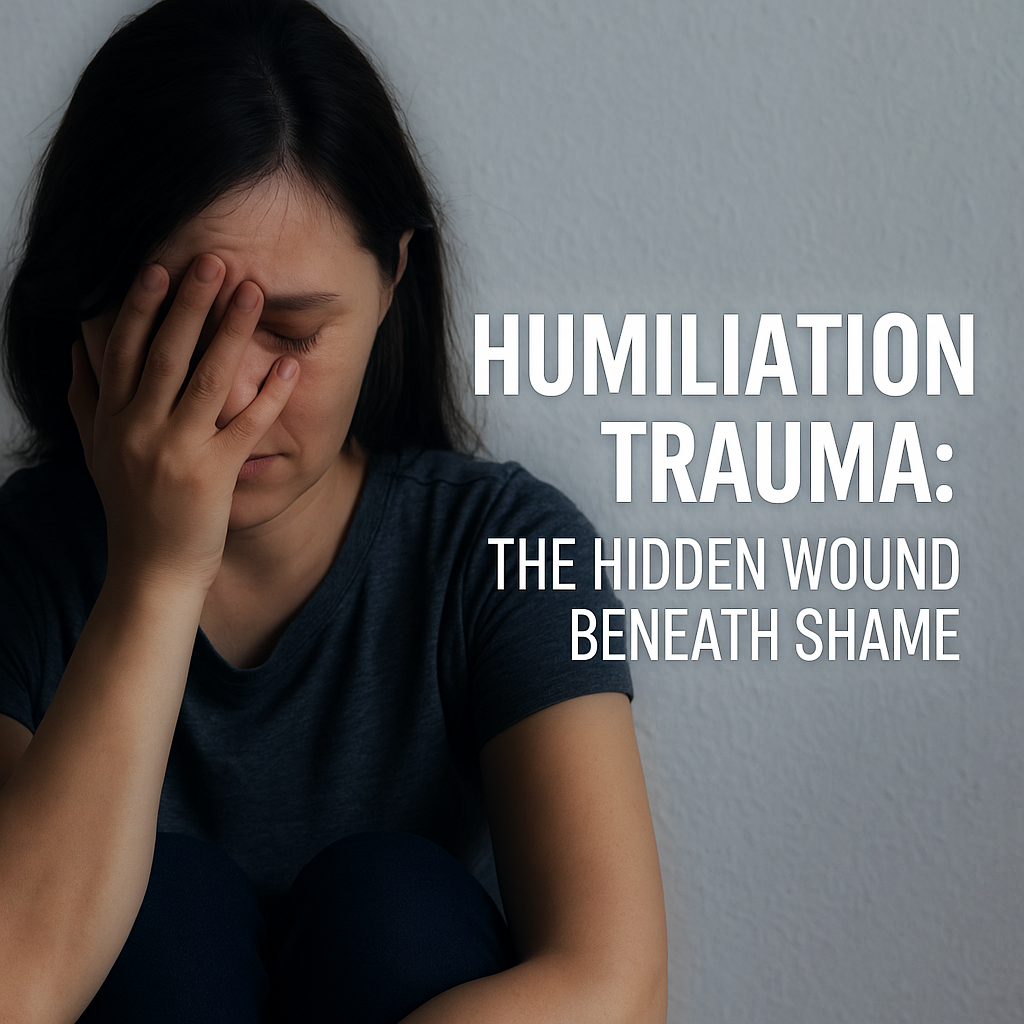
When Shame Becomes a Weapon: Understanding Humiliation Trauma
Understanding Humiliation Trauma
Humiliation is one of the most devastating forms of psychological harm. It cuts deeper than embarrassment or guilt—it strikes at a person’s sense of identity, worth, and belonging. For survivors of trafficking, abuse, or exploitation, humiliation was often used intentionally as a tool of control.
What Is Humiliation Trauma?
Humiliation trauma arises when a person is publicly or privately degraded, falsely accused, or made to feel powerless in a way that deeply impacts self-worth and safety.
Humiliation trauma occurs when someone is repeatedly shamed, degraded, or stripped of dignity in a way that causes lasting emotional and psychological damage. It’s not a single event; it’s an experience that embeds itself in the body and mind. Survivors describe it as a feeling of being erased, unseen, or treated as less than human.
Common examples include:
-
Public False Accusations or Job Loss
-
Being fired over lies, rumors, or character defamation.
-
Losing your role or reputation in a way that makes you feel shamed, powerless, or misrepresented.
-
Having people you trusted turn against you or spread misinformation.
-
-
Abuse or Exploitation
-
Being forced into degrading acts or shamed for what was done to you.
-
Being blamed for your own victimization.
-
Having private details exposed or used to control you.
-
-
Childhood or Family Experiences
-
Being mocked or criticized by parents, teachers, or peers in front of others.
-
Being told you are worthless, lazy, stupid, or a failure.
-
Repeated emotional neglect or ridicule.
-
-
Relational Betrayal
-
A partner or close friend intentionally embarrasses or belittles you.
-
Being publicly rejected, abandoned, or exposed in a way that feels dehumanizing.
-
-
Institutional or Spiritual Betrayal
-
Being humiliated by an authority figure, pastor, or leader.
-
Being silenced or shamed when speaking truth about abuse or wrongdoing.
-
Being made to feel “disposable” or “tainted” by a community or organization that once uplifted you.
-
Why It Hurts So Deeply
Humiliation trauma isn’t just about the event itself; it’s about the loss of dignity, belonging, and justice.
It says: “You are less than.” That message gets internalized until healing begins.
For someone falsely accused or wrongfully terminated, humiliation trauma often shows up as:
-
Shame and self-doubt (“Maybe I did something wrong”)
-
Social withdrawal (“I can’t face anyone”)
-
Anger and grief (“They destroyed my name”)
-
Hypervigilance and mistrust (“Who will betray me next?”)
How It Affects Survivors
Humiliation trauma can lead to:
- Deep shame and self-hatred – Survivors often internalize the abuser’s words and actions, believing they are “dirty” or “unworthy.”
- Avoidance and isolation – Many withdraw to protect themselves from further humiliation.
- Hypervigilance and anxiety – The body stays on alert, bracing for the next moment of rejection or ridicule.
- Difficulty trusting others – Vulnerability feels dangerous when humiliation once came from someone who claimed to love or protect you.
Healing from Humiliation
In the words of trauma researcher Dr. Bessel van der Kolk, “The opposite of trauma is not the absence of pain, but the presence of connection.” Healing humiliation trauma means restoring what humiliation took away: dignity, belonging, and hope.
Healing begins when survivors are met with compassion, validation, and safety. Restoring dignity is not a single step; it’s a process. Survivors begin to reclaim their voices by being seen, believed, and accepted without judgment.
At Innocence Freed, we help survivors recognize that what was done to them was never their fault. Through trauma-informed care, support groups, and faith-based restoration, survivors begin to understand that their worth was never lost—it was buried beneath the lies of those who tried to break them.
A Message of Hope
Humiliation may have silenced someone for a time, but it cannot erase who they are. When truth replaces shame, freedom begins. But what humiliation tried to destroy, God can redeem. He restores dignity, truth, and purpose.
“Instead of your shame you will receive a double portion,
and instead of disgrace you will rejoice in your inheritance.”
— Isaiah 61:7
You were never what was done to you. You are who God created you to be: worthy, loved, and free.
Written By: Julie A. Shrader
Founder and CEO of Innocence Freed and Restored Wings

